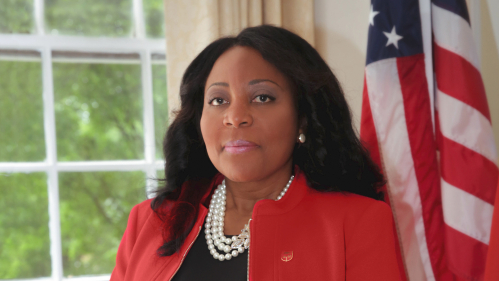The Road to an Education

As a little girl growing up in Guyana, Francine Conway would head down the dirt road to school, carrying a little bench that her grandmother had made for her so that she could take part in the outdoor classroom. These turned out to be Conway’s initial steps on her determined quest for an education. The first in her family to attend college, she is a graduate of Cornell and Columbia and holds a doctoral degree from Adelphi University, where she was a faculty member for 13 years. As a clinical psychologist and researcher, she has treated children in hospital settings and private practice for more than 30 years. Her work on the psychodynamic treatment of children with ADHD has earned her international recognition. In addition to her being an award-winning psychologist, Conway has held several administrative roles. She was the first Black dean of the Graduate School of Applied and Professional Psychology, where enrollment jumped under her leadership and faculty grants climbed as well. Later, she was provost and executive vice chancellor for academic affairs at Rutgers University–New Brunswick before being appointed to her current post. One of her priorities has been to make it easier for deserving underrepresented students to get an education by removing impediments to their ambition.
“Educational access means that as we pursue excellence in our institutions, we make sure that we are inclusive of groups that have been systematically excluded such as low-income students, first-generation students, students with disabilities, students of color, women in STEM fields, and working adults, to name a few,” she says.
As a faculty member and department chair, Conway had students come to her office to discuss their difficulties, and she saw her earlier self in them. As an immigrant, first-generation, Black female college student, Conway appreciated the opportunities that higher education had afforded her, but universities were not always welcoming places for her. “This is why I ascribe high importance to diversity efforts in academic spaces, bolstered by systems of accountability,” she says. “It takes courage for any institution to do this, but the process of undertaking this work together leads to an inclusive community in which everyone feels that they belong and everyone benefits.”
Apart from her quest to build a diverse and inclusive environment for faculty, staff, and students, Conway will be working closely with president Jonathan Holloway to continue strengthening the academic excellence and reputation of Rutgers–New Brunswick, a member of the prestigious Association of American Universities. She knows she has a lot to work with: “Rutgers–New Brunswick—a comprehensive public research land-grant institution, with the combined breadth of academic resources through its alliance with the Big Ten—is poised to deliver on its promise to serve the public; to be a welcoming and intellectually stimulating place for individuals from diverse backgrounds; and to transform the lives of individuals, communities, and the world.”